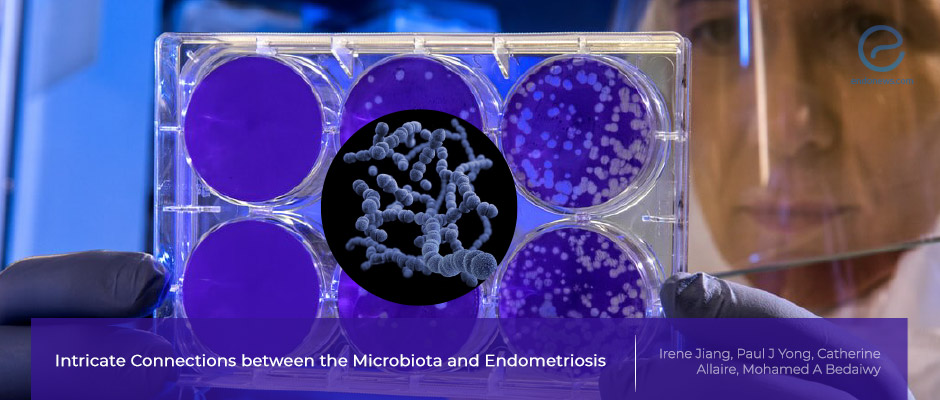The relationship between microbiota and endometriosis
Jul 29, 2021
Female genital tract microbiota undergoes significant changes in endometriosis
Key Points
Highlight:
- It is evident that bacterial presence in both the gut and uterus play a major role in endometriosis.
- Trying to maintain the balance between commensal bacteria and pathogenic bacteria may be helpful in the treatment of endometriosis.
Importance:
- The human microbiota is very important in maintaining a healthy state and it is known to contribute to certain diseases via inflammation and immune dysfunction when altered.
- Microbiota is proven to regulate the factors for a normal peritoneal environment, and dysbiosis plays a role in endometriosis onset and progression.
Key results:
- Usage of antibiotics improves the uterine microbiota and it is thought to be a promising approach in the treatment of endometriosis.
- Probiotic administration is also thought to be effective.
- Female genital tract microbiota sampling may be used as a diagnostic tool in the future.
What’s done here?
- This is a comprehensive review discussing the studies performed on the role of microbiota in the onset and progression of endometriosis.
Strength and Limitations:
- The small sample size of the study, the limited number of randomized-controlled studies, the usage of different techniques for the analysis of microbial composition, and the inability to sample the uterine microbiota of asymptomatic patients are the limitations of the studies.
Lay Summary
Endometriosis is a multifactorial and complex disease that results in an inflammatory state. This persistent inflammatory state is known to cause immune dysregulation. In the immunopathogenesis of endometriosis, activated macrophages, increased neutrophils, impaired natural killer cells, altered T-cell differentiation, and activated B cells all play a role. The presence of bacteria in the gut and uterine microbiome has been thought to contribute to the pathogenetic mechanisms of immune dysfunction in endometriosis.
Dr. Jiang and colleagues from the University of British Columbia, Canada have published a comprehensive review in the "International Journal of Molecular Sciences" about the mechanisms responsible for the pathogenesis of endometriosis and how these mechanisms are connected to the changes in the microbiota environment.
The human microbiota that consists of all the microorganisms that live in the body has been a popular subject in recent years and a lot has been proven about its effects on human health. The most studied one is the gut microbiota and it is now known that it plays a crucial role in immune cell function, protecting the host from certain infections and causing increased immunosurveillance.
Female genital tract microbiota on the other hand is still a subject of debate. With the identification of a distinct endometrial microbiota, the upper female genital tract, once thought to be sterile, has been proven to have its own microbiota environment. The authors state that the dominance of non-Lactobacillus spp. in vaginal microbiota may be related to the progression of endometrial inflammation which is known to be the hallmark of endometriosis. It is also known that the overgrowth of pathogenic bacteria causes a common inflammatory condition known as bacterial vaginosis which may trigger some gynecological diseases including endometriosis.
The studies on the relationship between female genital tract microbiota and endometriosis have shown that women with endometriosis have altered microbiota compared to healthy ones. It was also proven by several experimental studies on mice and monkeys that once endometriosis develops. Moreover, certain dietary measures such as intake of high omega-3 polyunsaturated fatty acids lower the risk of endometriosis.
The review goes on with the theories about microbiota involvement in endometriosis, including the Bacterial Contamination Theory, immune activation caused by dysbiosis, cytokines affecting gut function, estrogen regulation, and regulation of progenitor and stem-cell homeostasis, and it is stated that extensive research on these subjects is necessary.
The treatment options for endometriosis using this knowledge include the usage of antibiotics, administration of probiotics, and dietary intake of omega 3 fatty acids, however, extensive research should be performed before applying all these as treatment methods.
Research Source: https://pubmed.ncbi.nlm.nih.gov/34073257/
microbiota endometriosis dysbiosis

